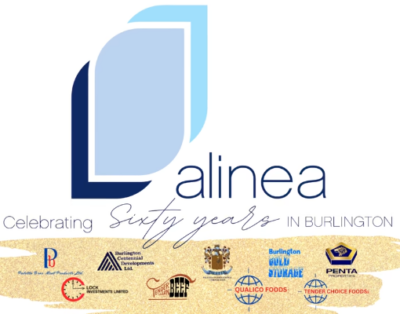 By Pepper Parr By Pepper Parr
December 16th, 2019
BURLINGTON, ON
Sheila Jones is the successful candidate for the position of Executive Director of Strategy, Risk & Accountability. Prior to her new role, Sheila was the City’s Auditor, a position she has held since she began with the City in 2009.
 Sheila Jones; now the Executive Director of Strategy, Risk & Accountability. From 2013 to 2016, Sheila led the Business Performance Advisory Unit which introduced Service portfolios and business plans to the organization. The introduction of both Service portfolios and the Business Case approach to justifying a new expenditure was new to the city; it took a bit of time for the line people to adjust to the change.
The creation of the new approach set the city up for the much more effective system that is in place.
In 2015 interview Jones explained where Council felt they fit into the Business Plans and Cases, Performance Tracking and Monitoring, Performance Reporting and Continuous Improvements process.
Were they OK with maintaining a strategic view of services by making decisions regarding commissioning and/or decommissioning of services; increasing and/or decreasing service levels and their appetite and/or tolerance for risk and a review of service portfolio?
Examples of de-commissioning a service were seen in the 2014 budget. Do you want leaf collection in the fall as frequently; how often do you want sidewalks plowed ? The leaf collection has been an issue since then,
Jones asked Council rhetorically in 2015: Do you accept Council’s role and responsibilities? 100% they said BUT, …there was still some work to be done to show the link from strategic goals to performance management.
The report that was being discussed set out Senior Management, Service Owner and Staff Role and Responsibilities. Each was to maintain an operational and tactical view of services by:
making decisions regarding how services are delivered within the limits of Council approved service levels and budgets; determining, tracking/monitoring and reporting on performance and identifying risks; determining and implementing opportunities for continuous improvement; reviewing services and maintaining the service portfolio based on the decisions of Council.
It was this level of detailed work that made Sheila a natural for the job.
The work Sheila Jones back in 2015 is a primer for the five new members of the current Council
Shelia Jones does not suffer fools very well. She tends to be a little on the media adverse side but she understands and works well within both accountability and transparency standards
Prior to working at the City, Sheila worked with RBC Financial Group. She holds an MBA from Queen’s University, is a Certified Government Auditing Professional, Certified Fraud Examiner, Certified Internal Auditor and has Certifications in Control Self-Assessment and Risk Management Assurance.
Sheila’s position will have corporate responsibilities for strategy execution, business performance, service reviews, continuous improvement, change and risk management. Sheila will champion the organization’s strategic plan and corporate strategies and related risk mitigation initiatives.
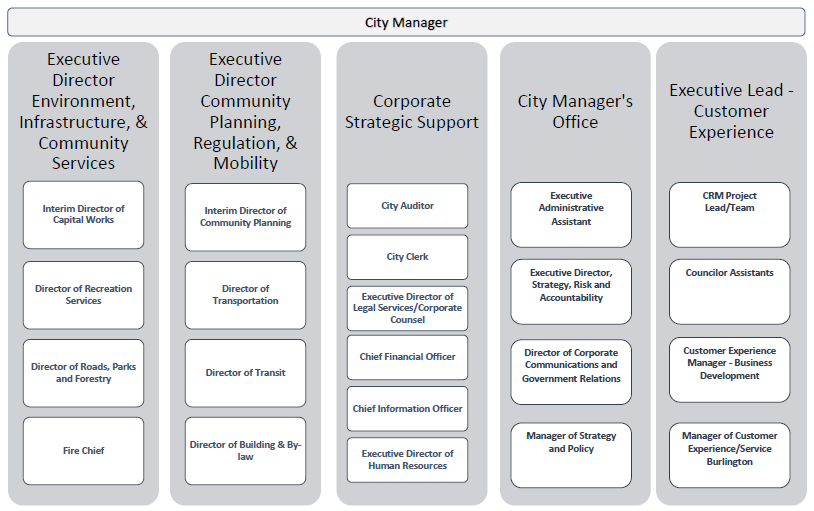
The new role will be effective on Monday. There were more than 90 applications from both the public and private sectors for the position.
The position of Executive Director of Strategy, Risk & Accountability is a new position to the City as part of a new organizational design implemented in September which put more emphasis on strategic management, risk assessment and public accountability.
Filling the Executive Director position will complete a key role and team in the City Manager’s Office. Reporting directly to Sheila will be the positions of Business Performance Manager and Manager of Strategic Initiatives & Corporate Projects. Chief among Sheila’s responsibilities will be to lead this team in monitoring, guiding and reporting back, on a regular basis, on the City’s Vision to Focus work plan. From Vision to Focus is the City’s work plan that prioritizes key strategic directions from Burlington’s long-term 25-year Strategic Plan and details key goals and strategic actions required to move these priorities forward during this term of Council.
City Manager Tim Commisso said Sheila brings a wealth of knowledge in the areas of risk management and accountability. Having Sheila dedicated to working closely with the Burlington Leadership Team and leading our strategic planning and risk management functions, including oversight of the implementation of Council’s Vision to Focus work plan will ensure the goals within the plan are met.”
Sheila Jones is now in a position to get Council to think “strategically” about those leaves.


December 13th, 2019
Dear Ms. Gould:
Thank you for agreeing to serve Canadians as Minister of International Development.
On Election Day, Canadians chose to continue moving forward. From coast to coast to coast, people chose to invest in their families and communities, create good middle class jobs and fight climate change while keeping our economy strong and growing. Canadians sent the message that they want us to work together to make progress on the issues that matter most, from making their lives more affordable and strengthening the healthcare system, to protecting the environment, keeping our communities safe and moving forward on reconciliation with Indigenous Peoples. People expect Parliamentarians to work together to deliver these results, and that’s exactly what this team will do.
It is more important than ever for Canadians to unite and build a stronger, more inclusive and more resilient country. The Government of Canada is the central institution to promote that unity of purpose and, as a Minister in that Government, you have a personal duty and responsibility to fulfill that objective.
That starts with a commitment to govern in a positive, open and collaborative way. Our platform, Forward: A Real Plan for the Middle Class, is the starting point for our Government. I expect us to work with Parliament to deliver on our commitments. Other issues and ideas will arise or will come from Canadians, Parliament, stakeholders and the public service. It is my expectation that you will engage constructively and thoughtfully and add priorities to the Government’s agenda when appropriate. Where legislation is required, you will need to work with the Leader of the Government in the House of Commons and the Cabinet Committee on Operations to prioritize within the minority Parliament.
We will continue to deliver real results and effective government to Canadians. This includes: tracking and publicly reporting on the progress of our commitments; assessing the effectiveness of our work; aligning our resources with priorities; and adapting to events as they unfold, in order to get the results Canadians rightly demand of us.
Many of our most important commitments require partnership with provincial, territorial and municipal governments and Indigenous partners, communities and governments. Even where disagreements may occur, we will remember that our mandate comes from citizens who are served by all orders of government and it is in everyone’s interest that we work together to find common ground. The Deputy Prime Minister and Minister of Intergovernmental Affairs is the Government-wide lead on all relations with the provinces and territories.
There remains no more important relationship to me and to Canada than the one with Indigenous Peoples. We made significant progress in our last mandate on supporting self-determination, improving service delivery and advancing reconciliation. I am directing every single Minister to determine what they can do in their specific portfolio to accelerate and build on the progress we have made with First Nations, Inuit and Métis Peoples.
I also expect us to continue to raise the bar on openness, effectiveness and transparency in government. This means a government that is open by default. It means better digital capacity and services for Canadians. It means a strong and resilient public service. It also means humility and continuing to acknowledge mistakes when we make them. Canadians do not expect us to be perfect; they expect us to be diligent, honest, open and sincere in our efforts to serve the public interest.
As Minister, you are accountable for your style of leadership and your ability to work constructively in Parliament. I expect that you will collaborate closely with your Cabinet and Caucus colleagues. You will also meaningfully engage with the Government Caucus and Opposition Members of Parliament, the increasingly non-partisan Senate, and Parliamentary Committees.
It is also your responsibility to substantively engage with Canadians, civil society and stakeholders, including businesses of all sizes, organized labour, the broader public sector and the not-for-profit and charitable sectors. You must be proactive in ensuring that a broad array of voices provides you with advice, in both official languages, from every region of the country.
We are committed to evidence-based decision-making that takes into consideration the impacts of policies on all Canadians and fully defends the Canadian Charter of Rights and Freedoms. You will apply Gender-based Analysis Plus (GBA+) in the decisions that you make.
Canada’s media and your engagement with them in a professional and timely manner are essential. The Parliamentary Press Gallery, indeed all journalists in Canada and abroad, ask necessary questions and contribute in an important way to the democratic process.
You will do your part to continue our Government’s commitment to transparent, merit-based appointments, to help ensure that people of all gender identities, Indigenous Peoples, racialized people, persons with disabilities and minority groups are reflected in positions of leadership.
As Minister of International Development, you will lead Canada’s efforts to reduce global poverty and inequality, provide humanitarian assistance, help the world’s poor adapt to climate change, and support displaced persons, particularly with access to education. Core to your portfolio will be the implementation of the Feminist International Assistance Policy, which has made Canada the leading donor globally in support of gender equality, women’s rights and comprehensive sexual and reproductive health and rights.
I will expect you to work with your colleagues and through established legislative, regulatory and Cabinet processes to deliver on your top priorities. In particular, you will:
Deliver Canada’s international development assistance that increases every year towards 2030, reflecting our commitment to realizing the United Nations Sustainable Development Goals.
Implement the Feminist International Assistance Policy, which is geared and prioritized towards reducing poverty, including by creating opportunities for women on the ground in developing countries.
Expand Canada’s support for global education, including for the poorest and most vulnerable:
Invest at least 10 per cent of our bilateral international development assistance envelope on education; and
Lead an international campaign to ensure that all refugee and displaced children can get the education they need and deserve.
Increase Canada’s collaboration on innovative financing with new and existing partners in civil society and the private sector, including through the continued implementation of initiatives that the Government has introduced, such as the International Assistance Innovation Program, FinDev Canada, the Sovereign Loans Program and the Equality Fund, and ensure they are fully aligned with Canada’s feminist approach to development.
Improve the way we manage and deliver international development assistance to ensure greater effectiveness, transparency and accountability.
Maintain the gender equality focus of all of Canada’s international assistance investments to address economic, political and social inequalities that prevent individuals from reaching their full potential.
Develop additional programming on the intersection between women’s rights and climate adaptation in order to better support sustainable and equitable resource management, agricultural production and access to markets.
Develop programming that recognizes, reduces and addresses the unequal distribution of paid and unpaid care work and that supports and protects the rights of paid and unpaid care workers to address a root cause of global inequality.
Support the Minister of Foreign Affairs to establish the Canadian Centre for Peace, Order and Good Government.
These priorities draw heavily from our election platform commitments. As mentioned, you are encouraged to seek opportunities to work across Parliament in the fulfillment of these commitments and to identify additional priorities.
I expect you to work closely with your Deputy Minister and their senior officials to ensure that the ongoing work of your department is undertaken in a professional manner and that decisions are made in the public interest. Your Deputy Minister will brief you on the many daily decisions necessary to ensure the achievement of your priorities, the effective running of the government and better services for Canadians. It is my expectation that you will apply our values and principles to these decisions so that they are dealt with in a timely and responsible manner and in a way that is consistent with the overall direction of our Government.
Our ability, as a government, to implement our priorities depends on consideration of the professional, non-partisan advice of public servants. Each and every time a government employee comes to work, they do so in service to Canada, with a goal of improving our country and the lives of all Canadians. I expect you to establish a collaborative working relationship with your Deputy Minister, whose role, and the role of public servants under their direction, is to support you in the performance of your responsibilities.
We have committed to an open, honest government that is accountable to Canadians, lives up to the highest ethical standards and applies the utmost care and prudence in the handling of public funds. I expect you to embody these values in your work and observe the highest ethical standards in everything you do. I want Canadians to look on their own government with pride and trust.
As Minister, you must ensure that you are aware of and fully compliant with the Conflict of Interest Act and Treasury Board policies and guidelines. You will be provided with a copy of Open and Accountable Government to assist you as you undertake your responsibilities. I ask that you carefully read it, including elements that have been added to strengthen it, and ensure that your staff does so as well. I expect that in staffing your offices you will hire people who reflect the diversity of Canada, and that you will uphold principles of gender equality, disability equality, pay equity and inclusion.
Give particular attention to the Ethical Guidelines set out in Annex A of that document, which apply to you and your staff. As noted in the Guidelines, you must uphold the highest standards of honesty and impartiality, and both the performance of your official duties and the arrangement of your private affairs should bear the closest public scrutiny. This is an obligation that is not fully discharged by simply acting within the law.
I will note that you are responsible for ensuring that your Minister’s Office meets the highest standards of professionalism and that it is a safe, respectful, rewarding and welcoming place for your staff to work.
I know I can count on you to fulfill the important responsibilities entrusted in you. It is incumbent on you to turn to me and the Deputy Prime Minister early and often to support you in your role as Minister.
Sincerely,


 By Staff By Staff
December 13th, 2019
BURLINGTON, ON
The Alcohol and Gaming Commission of Ontario (AGCO) has received an application for a fourth cannabis retail store in Burlington called the Friendly Stranger Plains Road. The proposed location at 1025 and 1059 Plains Rd East, Unit 3 is now up for public comment.
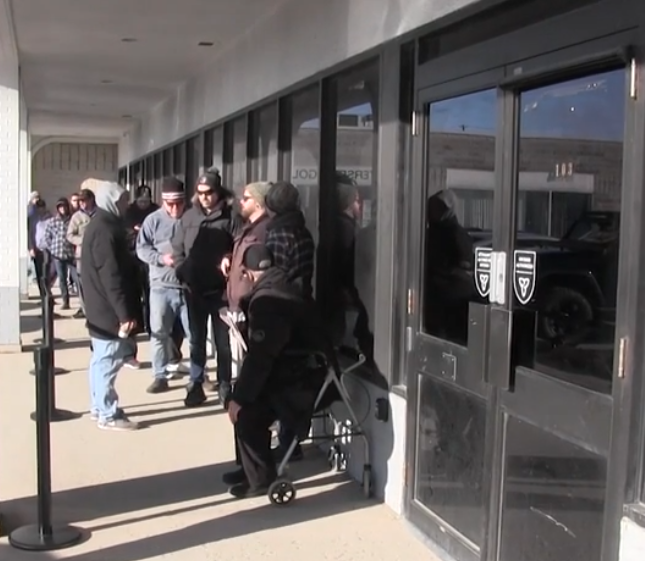 Opening day at a Burlington cannabis store. Written comments about the proposed location will be received by the AGCO until Dec. 27 and may be submitted online at www.agco.ca/iAGCO. The AGCO will accept submissions from:
• A resident of the municipality in which the proposed store is located
• The municipality representing the area in which the proposed store is located and/or its upper-tier municipality.
Comments submitted to the AGCO should relate to the following matters of public interest:
• Protecting public health and safety
• Protecting youth and restricting their access to cannabis
• Preventing illicit activities in relation to cannabis
After Dec. 27, the AGCO will consider all written comments and available information to decide whether the application for the proposed store location will be approved.
Burlington has two cannabis stores authorized by the AGCO and open. Three more applications are in progress, one of which is the Friendly Stranger Plains Road.
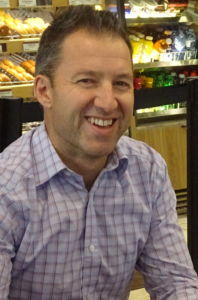 Ward 1 Councillor Kelvin Galbraith. Ward 1 Councillor Kelvin Galbraith said “We heard from a few of the delegations when we were debating the cannabis retail bylaw for Burlington that Plains road would be an ideal location for a few stores. Not surprising that we are now seeing our first application. This location meets all of our current city and provincial guidelines and fills a vacant space that has struggled to maintain a business operation. Cannabis is a legal product and this provides a convenient location to the surrounding community to purchase a product that is produced and regulated by the higher levels of government.”
 Mayor Marianne Meed Ward Mayor Marianne Meed Ward said: “This location meets all of the City of Burlington’s criteria and retail store guidelines for our preferred locations. While we continue to learn from the launch of this new industry and watch it evolve, our City has been a leader in creating our own made-in Burlington guidelines of where we would like to see these types of stores located and their proximity to sensitive land uses. The City opted in to permitting retail cannabis stores and we need to continue to see them as a legitimate part of our local business community.”
Quick Facts: The provincial requirement for a cannabis retail store is 150 metres from schools (as defined by the Education Act), as per the provincial regulations. The City of Burlington guideline for a cannabis retail store is 500 metres from schools

 By Ray Rivers By Ray Rivers
December 13th, 2019
BURLINGTON, ON
Readers will know that it is not often I agree with Andrew Scheer. But I was encouraged by the part of his rebuttal to the throne speech, where he raised resolution of the year-long China problem. And again, I applauded Scheer’s follow-up motion to strike a committee to that end, a motion supported by all the opposition parties, though not the Liberals.
 Scheer’s motion to strike a committee that would look into Canada China relations was a good move. It’s possible the government knows what it is doing on this file and has it under control. But that’s not good enough. Canadians are in the dark and want some answers. The Chinese leadership’s anger over the detention of the nation’s Huawei executive is unmeasured and precipitous. Seizing innocent Canadians and torturing them to make a point and then declaring a trade war are pretty hostile acts for a nation which used to consider Canada one of its best friends in the west.
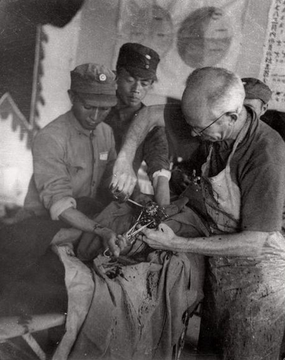 Dr. Norman Bethune saved the lives of millions of Chinese soldiers and civilians during the second Sino-Japanese war. He is credited with bringing modern medicine to rural China. Canadians were once held in high regard. Our own Dr. Norman Bethune saved the lives of millions of Chinese soldiers and civilians during the second Sino-Japanese war. He is credited with bringing modern medicine to rural China, having treated sick villagers as well as wounded soldiers. His selfless commitment made such an impression that Mao Zedong wrote a eulogy to him on his death – one that had been celebrated by generations of Chinese people.
That may be too long ago for today’s Chinese leaders, but even they might have heard that it was Justin’s father, Pierre, who made Canada the first western country, since before the Korean War, to it grant it recognition as the rightful government of China. Canada also played the lead role in bringing China into the World Trade Organization, something which stinks of irony now that we are having to sue them over their illegal blockade of our oil seed and meat exports.
China is our second biggest trading partner. But the trade is horribly lopsided. We import much more than they buy from us. In 2016 we imported over $40 billion more than we exported to China. Much of that trade is in the kind of disposal-ready stuff one sees at the Dollar Store or Walmart, aka China Inc. Chinese-made goods have virtually helped decimate our textile, book making and other manufacturing industries.
And Canadians are starting to get fed up. For example, a recent Pew Research survey showed that two-thirds of Canadians now view China negatively. But we don’t see that reflected in the limited actions our federal government has taken so far, actions which have failed to bring about the kind of behavioural changes we should expect.
So people are speaking up. The Senate recently suggested using the Magnitsky law to sanction Chinese officials. Somebody else has mused that we should ban commercial air freighters from over flying Canada. Of course banning Huawei from investing in Canadian telecom infrastructure, as most of our five eyes partners have done, is a no brainer.
 Emerald ash borer: The insect arrived from China in some kind of wood product and is now eradicating ash trees across this province. Even though China is in the WTO, the nation is anything but a fair trader, it has a long history of ‘dumping’ goods on foreign markets, stealing intellectual property and manipulating its currency. We could retaliate in kind. For example banning all Chinese forest products as a precaution against something like the emerald ash borer ever happening again. The insect arrived from China in some kind of wood product and is now eradicating ash trees across this province.
The Trudeau government has promised legislation to ban single use plastics. We could virtually ban imports from all nations, including China, which are packaged in plastic – or at least insist that all exporting nations take its waste back for recycling… and not just dump it in the ocean.
And then there is the question of foreign investment. Mr. Trudeau, like his processor Mr. Harper has appeared indecisive and inconsistent, seemingly making up policy on the fly, when trying to decide just how much of our door we can safely open to the second largest economy on earth.
Today’s China is a rapidly militarizing autocratic state with a president-for-life. And given the upshot from this Huawei extradition morass it is clear that China understands neither the rule of law nor how to conduct non-combative diplomacy. One just needs to consider Tibet, Tiananmen Square, Falun Gong, Uighurs and now Hong Kong where 300,000 people with Canadian citizenship live.
 Tiananmen Square and the courage of one man – changed the world. This is a complicated and even dangerous file, and lives are at stake. In addition, China has been touted as one of the potential markets for all that extra oil and gas which Alberta and B.C. keep saying they can export. But how likely is that if Canada responds in-kind and the spat escalates?
Andrew Scheer did the PM a favour by striking this committee, something which Trudeau may learn to appreciate, despite his knee jerk rejection. Perhaps he is concerned about control. Though chaired by the PM’s party, Liberals are not in majority. And the PM and ministers can be called to testify as witnesses. And why not? Call it full disclosure. Call it burden sharing. Call it how minority government should work – that is, cooperatively.
It is been a rare moment when this columnist actually agreed with the leader of the Conservative party. And then Mr. Scheer has the gumption to up and resign, apparently because he was under attack for using party funds to send his kids to private school. Maybe I shouldn’t have been so quick to give Scheer my blessing.
 Ray Rivers writes regularly on both federal and provincial politics, applying his more than 25 years as a federal bureaucrat to his thinking. Rivers was once a candidate for provincial office in Burlington. He was the founder of the Burlington citizen committee on sustainability at a time when climate warming was a hotly debated subject. Ray has a post graduate degree in economics that he earned at the University of Ottawa. Tweet @rayzrivers Ray Rivers writes regularly on both federal and provincial politics, applying his more than 25 years as a federal bureaucrat to his thinking. Rivers was once a candidate for provincial office in Burlington. He was the founder of the Burlington citizen committee on sustainability at a time when climate warming was a hotly debated subject. Ray has a post graduate degree in economics that he earned at the University of Ottawa. Tweet @rayzrivers
Background links:
Trudeau Legacy China – China History –
Throne Speech – Magnitsky –

 By Staff By Staff
December 12th, 2019
BURLINGTON, ON
He may not have wanted his picture taken – the police now want to take a clearer picture and get his fingerprints on paper as well.
The Halton Regional Police Service are asking for the public’s help to identify a suspect.
On October 12, 2018, cash and credit and debit cards were stolen from an unlocked vehicle parked in the lot of a Boston Pizza location in Burlington. The tap feature on the stolen cards was used to make several fraudulent transactions in the area.
Surveillance footage from the retail locations shows the same suspect in each transaction. The suspect is described as male, white between 28 and 40 years of age. He is approximately 5’6″ to 5’9” tall with an average build. He has black hair and is clean shaven. He was seen wearing a grey baseball cap with no logo, a dark grey long sleeved shirt, black pants and black shoes.
 Can you identify this man? Call the police directly or call Crime Stoppers. A friendly wave on the right after making a purchase with someone else’s credit card.    Anyone with information is asked to contact Constable Christine McKenzie in 3 District (Burlington) at 905-878-5511 ext. 7393. Anyone with information is asked to contact Constable Christine McKenzie in 3 District (Burlington) at 905-878-5511 ext. 7393.
Tips can also be submitted anonymously to Crime Stoppers. “See something? Hear something? Know something? Contact Crime Stoppers” at 1-800-222-8477 (TIPS) or through the web at www.haltoncrimestoppers.ca.

 By Staff By Staff
December 12th, 2019
BURLINGTON, ON
Trustees of the Halton District School Board (HDSB) encourage the Burlington community to add their voices to ask the City of Burlington to support free municipal transit for high school students. The City is currently in budget talks, which includes a process of prioritizing such initiatives.
 High school students might get an upgrade to the traditional orange school bus to a nice new electric bus. Not this year – but soon if the four boards and the city can work out an understanding. Halton District School Board Trustees will be delegating Burlington City Council on Monday, Dec. 16, 2019 in favour of continuing talks to develop a Memorandum of Understanding (MOU) for all Burlington high school students to ride municipal transit free of charge beginning September 2020.
 HDSB Chair Andrea Grebenc. 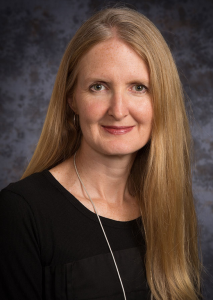 HDSB vice chair Tracey Ehl Harrison Earlier in the year the HDSB re-elected Andrea Grebenc as chair and Tracy Ehil Harris as vice chair – this is the third term for each woman.
This item will be on the Council agenda on Monday, Dec. 16 at 6:30 p.m. at Burlington City Hall.
Currently, school boards pay for student municipal transit passes for specific high school students who commute to specialized programs offered at schools other than their home school. One of the possible Halton District School Board commitments under the MOU could be to maintain the current level of financial contribution to help offset the costs to the City.
The school board trustees are asking people to consider attending the December 16 meeting to support the Trustee delegation, delegating yourself or sending in a letter of support.
The city has allocated $42,500 to cover the cost and is looking to the other school boards to chip in.
Burlington City Council is trying hard to get electric buses into the fleet, add to the size of the fleet and install EV chargers for the buses – they come in at $1 million each.

 By Pepper Parr By Pepper Parr
December 12th, 2019
BURLINGTON, ON
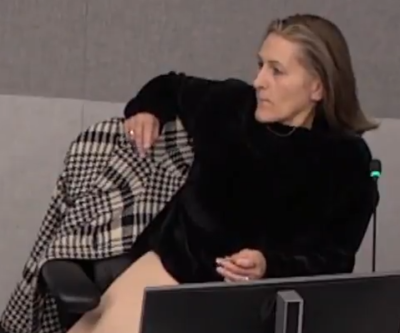 The Mayor is rock solid on holding the budget increase to 3.99% over last year’s 2.99% It’s still a 3.99% tax increase with the very real chance that it will go up to 4.35% which the Mayor is really, I mean really opposed to – others don’t seem as fussed about something higher than the 3.99%
It’s all about optics, girls and boys – and speaking of optics, why did three council members have something else they just had to get to and excused themselves for a period of time.
Mayor Meed Ward said “Gotta make tough choices – you know where I am coming from.”
Councillor Stolte asked aloud if the lens they were looking at the budget with was a 3.99% or was it the merit of the item that was being debated.
 Spending on upgrading pedestrian crossings to make clear the point that the street and roadways are for people. That item got cut. Money to be spent on pedestrian cross walks got whittled down from $200,000 to $100,000 and eventually settled at $30,000.
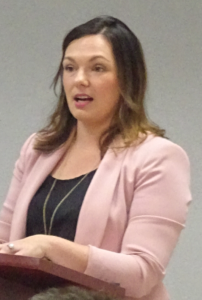 Councillor gave up the Chair for an hour but returned. 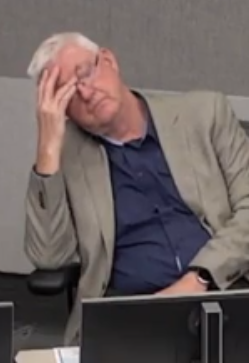 Councillor Sharman left and didn’t return. Councillor Kearns scooted out for an hour, Councillor Sharman disappeared at about 1 pm and didn’t return.
Councillor Galbraith said he had to go but managed to hold it. So it was really just two out of the seven,
Budget is the reason they are there – no excuse for having to attend some other “scheduled” event.
Director of Finance Joan Ford pointed out that this Council managed to pass two budgets in the same calendar year – true, and this council worked hard at shaving a thousand or two here and another thousand there.
They adjourned for the day at about 3:30 pm and will be back at it on Monday. A round up of what got approved and what didn’t make the cut will follow later in the day.
There was one motion put on the table – and no one voted for it. Not sure how that happened – doesn’t the mover of the motion have to vote for it? (No, they don’t – getting it on the table is sometimes the only way to debate its merits.)
The Procedural Bylaw is something Councillors are going to have to spend more time reading; several don’t know the rules and that slows things down.

 By Staff By Staff
December 12th, 2019
BURLINGTON, ON
In a media release from the province we are told that:
After a successful fall session, the Ontario Legislature will be adjourning until the (They will return to the Legislature two months into that New Year) New Year. Since October, the Government of Ontario has worked collaboratively with Members of all parties to more effectively and efficiently deliver on its plan for the people of Ontario.
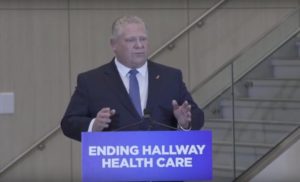 “This has been an incredibly productive legislative session,” said Minister Paul Calandra, the Government House Leader. “We have worked across the aisle on initiatives such as the Fall Economic Statement, the Provincial Animal Welfare Services Act, the Trust in Real Estate Services Act, the modernization of the rules and procedures of the Legislature, and the Poet Laureate of Ontario Act, sponsored by Percy Hatfield, MPP for Windsor-Tecumseh.” “This has been an incredibly productive legislative session,” said Minister Paul Calandra, the Government House Leader. “We have worked across the aisle on initiatives such as the Fall Economic Statement, the Provincial Animal Welfare Services Act, the Trust in Real Estate Services Act, the modernization of the rules and procedures of the Legislature, and the Poet Laureate of Ontario Act, sponsored by Percy Hatfield, MPP for Windsor-Tecumseh.”
Over the past several weeks, (the government sat for just six weeks after a long long summer-fall break) the Ontario Government has many Legislative accomplishments, including:
• Passed Bill 116, the Foundations for Promoting and Protecting Mental Health and Addictions Services Act which, if assented to by the Lieutenant Governor, will establish a Mental Health and Addictions Centre of Excellence within Ontario Health and support the province’s participation in a national class action lawsuit against more than 40 opioid manufacturers and wholesalers.
• Passed Bill 132, the Better for People, Smarter for Business Act which will simplify and modernize regulations while protecting health and safety.
• Passed Bill 136, the Provincial Animal Welfare Services Act, which implements the strongest penalties in Canada for people who violate animal welfare laws while enhancing oversight and accountability.
• Passed Bill 138, the Fall Economic Statement, A Plan to Build Ontario Together Act, which delivered on the government’s commitment to cut Ontario’s small business tax rate by 8.7 per cent and helped reduce the cost of living in northern Ontario by cutting the aviation fuel tax.
 • Passed Bill 124, the Protecting a Sustainable Public Sector for Future Generations Act. • Passed Bill 124, the Protecting a Sustainable Public Sector for Future Generations Act.
• Introduced the Trust in Real Estate Services Act which has now passed second reading. This bill if passed, would increase consumer confidence, enhance standards for real estate professionals and brokerages and provide additional flexibility to keep pace with a modern marketplace.
• Introduced and began debate on the Security from Trespass and Protecting Food Safety Act which, if passed, will better protect our hardworking farmers, their families, their employees and their farm animals by addressing unique risks associated with on-farm trespass.
• Introduced the Rebuilding Consumer Confidence Act, which, if passed would overhaul the Ontario new home warranties and protection program, reforming Tarion Warranty Corporation, making it consumer-focused.
• Introduced the Smarter and Stronger Justice Act which, if passed will modernize and improve how legal aid services are delivered, class actions are handled, and how court processes are administered. This bill also paves the wave to allow identities and legal documents to be verified online, making life easier for the people of Ontario. .
• Successfully modernized the rules of the Legislative Assembly of Ontario to enhance debate, empower independent Members, and allow the accommodation and full participation of Members of Provincial Parliament with disabilities.
 • Worked across party lines to advance two Private Members’ Bills – Bill 6, the Poet Laureate of Ontario Act, sponsored by NDP MPP Percy Hatfield and Bill 123, co-sponsored by PC MPP Lorne Coe and Green Party Leader Mike Schreiner, which would create a fine for drivers who block parking spaces that are reserved for electric vehicle charging. • Worked across party lines to advance two Private Members’ Bills – Bill 6, the Poet Laureate of Ontario Act, sponsored by NDP MPP Percy Hatfield and Bill 123, co-sponsored by PC MPP Lorne Coe and Green Party Leader Mike Schreiner, which would create a fine for drivers who block parking spaces that are reserved for electric vehicle charging.
“Our priorities this legislative session have been to restore trust and accountability in government, to reduce red tape and regulatory burdens for our job creators, and to build safer communities,” added Minister Calandra. “While there is still much work to be done, I am very pleased with the progress that we have made and the cross-partisan relationships we continue to build.”
That’s the government’s side of the story.

 By Staff By Staff
December 11th, 2019
Burlington, ON
The Loose Leaf Collection Program has officially, and finally, been completed for 2019.
Residents with remaining leaves can bag them for Halton Region’s Yard Waste Collection, which has been extended until Dec. 20, 2019.
Leaf collection in Zones 1, 2 and 3 were completed.
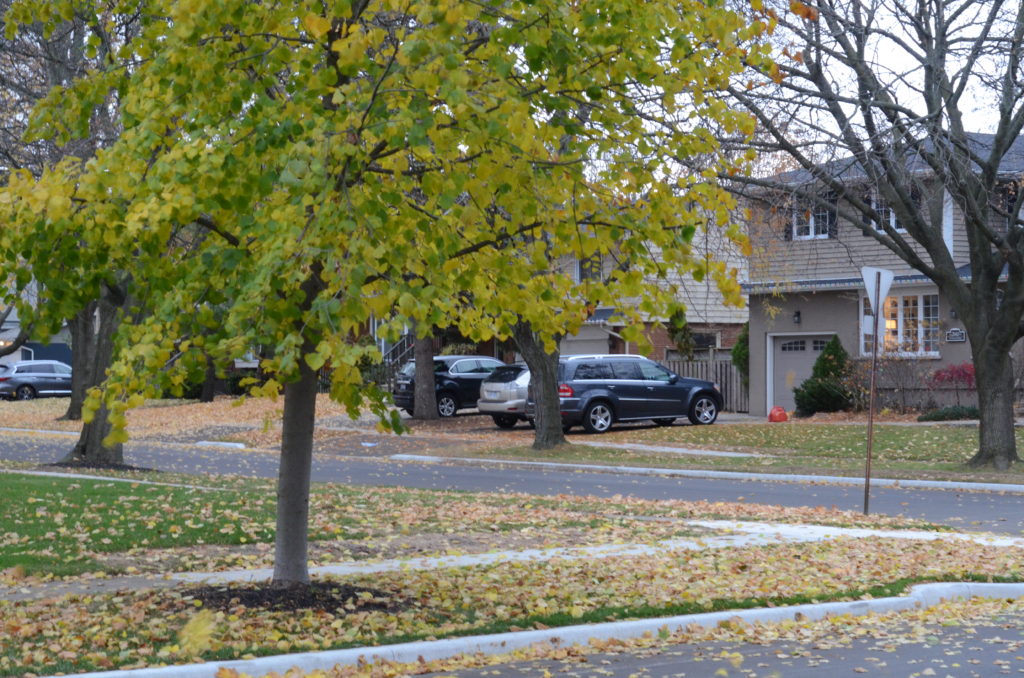 Will the Provincial Review of services the city delivers decide that the Loose Leaf Collection should end ? This year’s loose leaf collection had scheduling and operational problems due to challenging weather patterns which started with a very early snow storm on November 11, freezing temperatures and precipitation. The machinery used cannot pick up frozen leaves. When the temperatures returned to normal, crews worked long hours to complete Zones 2 and 3 before the unfavorable weather returned.
In total, ten days of loose leaf collection were lost due to the weather.
The City cannot do leaf collection and snow clearing at the same time because the same trucks are used for each service. The trucks need to have the leaf collection equipment removed and the plow blades and sand/salt spreading equipment attached.
Service Review
The Province of Ontario has provided funding to municipalities and school boards throughout the province to conduct independent reviews to find efficiencies while protecting important front-line services. Loose Leaf Collection was one of the four City of Burlington services reviewed.
The consultant’s final report will be delivered to the Province by Dec. 31, 2019.
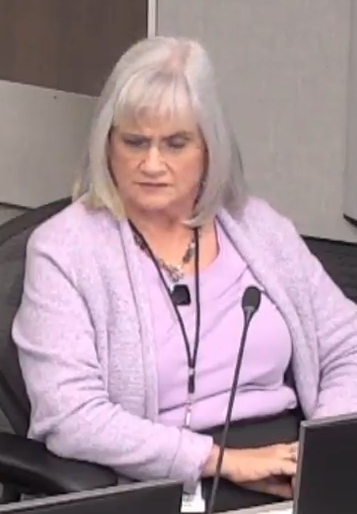 Mary Battaglia, Director of Roads, Parks and Forestry. Mary Battaglia, Director of Roads, Parks and Forestry said: “This was a challenging year. I would like to acknowledge all of the hard work our crews put in to collecting leaves and removing snow as well as our admin staff. We can’t collect leaves and remove snow at the same time and snow removal will always take priority.
We are very aware of the challenges that rescheduling and cancelling leaf collection means for residents and we greatly appreciate all the residents who bagged their leaves and exercised patience and understanding.
Our focus is now on clearing roads.”

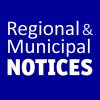 By Staff By Staff
December 11th, 2019
BURLINGTON, ON
The Wolfe Island Bridge temporary lane closures have been extended to March 23, 2020
The temporary lane closures for eastbound and westbound traffic on the bridge on Plains Road West, west of Botanical Drive has been extended however one lane will remain open in both directions at all times.
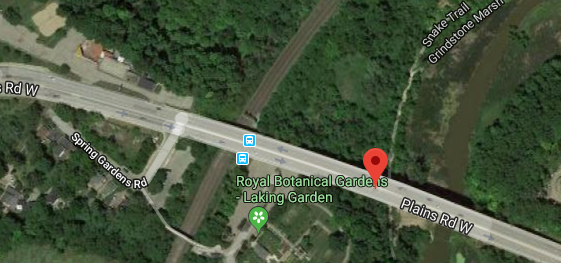

 By Staff By Staff
December 11th, 2019
BURLINGTON, ON
There is a new women’s accelerator program called Beyond Boundaries that is being run by HalTech
The program will offer:
• Skills development in financial acumen, technology expertise, and scaling up
• Targeted connections through networking events and strategic introductions.
• Mentorship, advisory support and peer learning circles.
• Exploration of new markets and global opportunities.
 The Government of Canada is advancing women’s economic empowerment with the first ever Women Entrepreneurship Strategy (WES), a $2-billion investment that seeks to double the number of women-owned businesses by 2025. Doubling the number of women owned businesses requires a strong ecosystem of support, expertise and connections. The Government of Canada is advancing women’s economic empowerment with the first ever Women Entrepreneurship Strategy (WES), a $2-billion investment that seeks to double the number of women-owned businesses by 2025. Doubling the number of women owned businesses requires a strong ecosystem of support, expertise and connections.
As part of WES, Haltech Regional Innovation Centre and the Halton Region Global Business Centre are pleased to introduce an accelerator program designed to unleash the power and potential of women entrepreneurs. Created with the unique challenges and opportunities faced by the diversity of women who start and run businesses.
The first cohort of the program will start in early 2020.
CLICK HERE for an application form.

 By Pepper Parr By Pepper Parr
December 11th, 2019
BURLINGTON, ON
With the budget before them and the Mayor having whittled down what she would like to see in the way of a tax increase to 3.99% it was time for delegations to speak about what they would like to see.
There were several outstanding delegations – asking for the most part for additional staff to be on the Climate Change file and for better communications coming out of city hall.
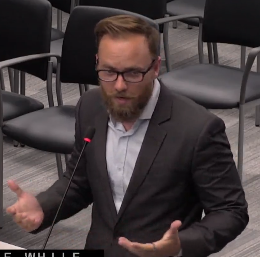 Myles Rusak, Executive Director Sound of Music Festival: Making his case for a funding increase. There were two exceptions: Myles Rusak speaking for Sound of Music who wants an additional $40,000 a year each year for the next three years starting with this year.
Why?
The other levels of government have cut back on what the Sound of Music was getting and SoM isn’t interested in cutting back. They want the city to make up the short fall.
Their view seems to be that if they cut back on the quality of what they have been doing, audiences will dwindle and the economic impact of what SoM does for the city will dwindle as well.
Last year SoM did a two day kick off – that’s the period of time when paid ticket performances are put on stage – to raise money for the shows that the public can see free.
The two day Kick off didn’t work out all that well last year – so it will be just a one day event going forward.
It may be quite a bit less than that if the city doesn’t come up with some cash.
There is a Municipal Accommodation Tax somewhere in the works at Queens Park – Myles wants to get a piece of that using the phrase “100% – we want some of those dollars”. Mayor Marianne Meed Ward pointed out that it is city council that decides where the dollars go. Municipal Accommodation Tax (MAT) Hotels and people doing short-term rentals must pay a four per cent Municipal Accommodation Tax (MAT). More information will become available in December 2019, regarding short-term rental regulations.
Myles told Council, meeting as a budget committee, that SoM has been meeting with anyone that delivered a service to the public, looking for ways to partner with them. The YMCA, the Library, the Museum, the Performing Arts Centre – conversations have taken place looking for ways to partner with them.
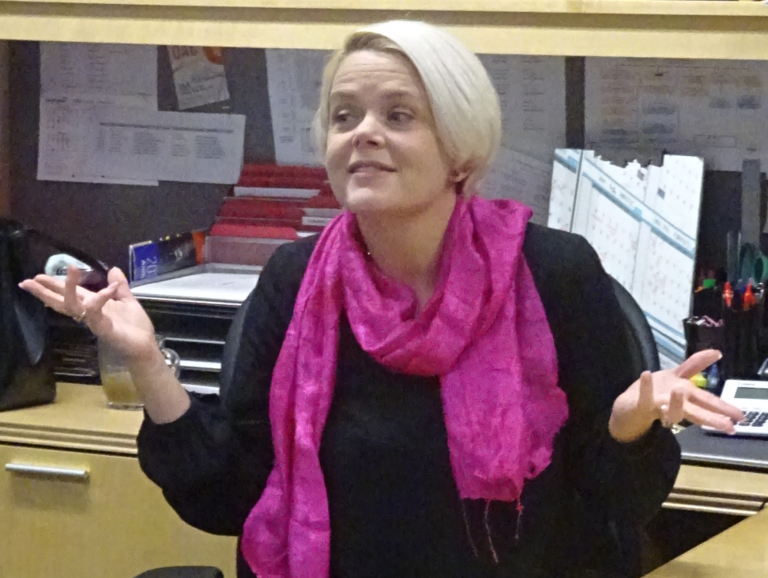 Tammy Fox, Executive Director of the Performing Arts Centre has been waiting to hear from Myles Rusak for sometime. Roll that film back – during our last interview-conversation with Tammy Fox at the Performing Arts Centre she said that she has been trying for a couple of years to put something together with the SoM. Which is correct? We’re going with Tammy.
Myles told council that he has as yet not been able to meet one-on-one with every council member. Then he hasn’t been trying very hard. Councillor Sharman would certainly like to have a conversation with Myles and the SoM music long term plans – the Mayor probably has some sage advice for Myles as well.
Myles talked the big picture and said that that the Sound of Musical Festival was going to drop the word Festival from the brand name.
The want to be seen as more than a ten-day event and become the organization that gives the music industry in Burlington the cohesiveness it lacks.
Myles wants SoM to be the curator of everything that is music in town – from what takes place at the Library to what is featured at Emmas.
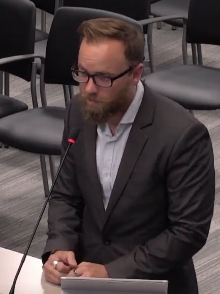 The Sound of Music wants to morph from a 10 day event to become the curator of everything musical in the city. They are looking for much more in the way of clout. It is an ambitious reach – one that is going to have to be earned and not taken.
SoM was once an organization that had an active membership – anyone could be a member and every member could vote for the Board of Directors. That form of governance disappeared about four years ago when Andy Porecki was Executive Director.
When the Board decided that Dave Miller needed to use the exit door – he was dismissed rather unceremoniously which threw the membership into a serious state of confusion. SoM almost had a mutiny on its hands. The unhappy members were not able to organize themselves and bring about changes that would make the organization more transparent and accountable.
Councillor Sharman wanted to know what part the city would play in this change in the way music would be managed, overseen and developed. “We have people on staff” said Sharman who can and should be part of the thinking you are doing.”
Myles said he has had meetings with a few people at Parks and Recreation and he has been working with Tourism as well.
The SoM gets $106,093 from the city each year. He wanted that bumped up by $40K this year and an additional $40,000 for the next two years.
Myles said they are putting together a television show with Cogeco and that there are plans to put on a program with the Indigenous community that will be highlighted in 2020.
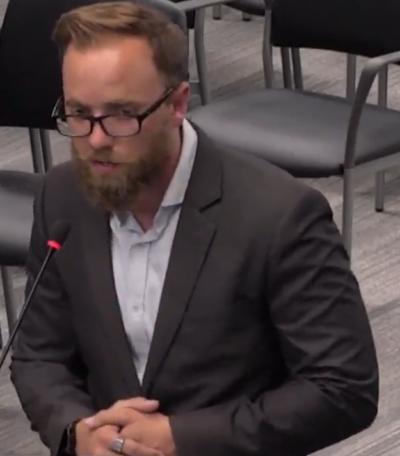 Sound of Music needs a fatter cheque from the city. Sharman wanted to know a lot more before he went anywhere with additional financing. As he put it he “wants to eat the meal before he pays for it”.
Councillor Kearns cut Myles short – as chair she had heard enough. Kearns sits on the SoM Board.
Myles Rusak should wait for a fatter cheque to arrive from the city. He should take Tammy Fox out to lunch – she really does want to do some business with the Sound of Music people – she has been trying to get something going for more than two years.
Myles needs to learn just who will butter the bread he needs. Council needs to be romanced.
Related news stories:
SoM lets council know they will be back looking for financial support
SoM volunteers feel left out.
S0M – trouble in paradise
Salt with Pepper is the musings, reflections and opinions of the publisher of the Burlington Gazette, an online newspaper that was formed in 2010 and is a member of the National Newsmedia Council.

 By Staff By Staff
December 10th, 2019
BURLINGTON, ON
Now here is a Christmas gift that everyone gets something out of.
The provincial government is putting $2.4 million into the Reduce Impaired Driving Everywhere (RIDE) Grant to help police services across the province detect impaired drivers and keep our streets and highways safe.
 RIDE checks being done. 172 police services will receive the funding they need to carry out this vital road safety mission throughout the year.
“Sadly, impaired driving continues to be the leading criminal cause of death and injury in Canada,” said Sylvia Jones, Solicitor General.
“The funding our local police services receive will help them conduct regular roadside spot-checks and education campaigns needed to detect impaired drivers and keep our roads safe throughout the year.”
In the last decade in Ontario, more than 1,700 lives have been lost and over 25,000 people injured in collisions involving an impaired driver. With the legalization of recreational cannabis last year, roadside spot-checks have proven even more crucial.
“Impaired drivers, whether by drugs or alcohol, can be found on the road every single day — not just around the holidays,” said Solicitor General Jones. “It’s simple – don’t get behind the wheel if you’re impaired – make alternative arrangements to get home. This single decision can save your life and the lives of others.”
The grant is intended to cover sworn officers’ overtime and paid duty RIDE activities.
Police officers get to pick up more overtime work and the public is kept safer with more officers out on the streets and road ways pulling drivers over

 By Pepper Parr By Pepper Parr
December 10th, 2019
BURLINGTON, ON
On Tuesday and Thursday of this week council is going to go through documents and approve the 2020 operating budget including any budget amendments approved by the Committee of the Whole – Budget to be applied against the proposed net tax levy amount of $173,635,179; and
Approve the 2020 capital budget for the City of Burlington, with a gross amount of $85,791,551 with a debenture requirement of $7,613,145, and the 2021-2029 capital forecast with a gross amount of $723,878,943 with a debenture requirement of $47,592,200
Administer the debenture in the amount of $6,113,145 in 2020 as tax supported debt; and
Administer the debenture in the amount of $1,500,000 in 2020 as special circumstances debt; and
Declare that, in accordance with sis. 5(1)5 of the Development Charges Act, 1997 and s. 5 of Ontario Regulation 82/98, it is Council’s clear intention that the excess capacity provided by the above-referenced works will be paid for by future development charges.
Then they will send it all to a December 16th council meeting when we will learn if they were able to keep the tax increase for 2020 is kept at the 4% level.
The proposed 2020 operating budget is $173.6 million and the 2020 capital budget is $85.8 million, with a ten-year program of $809.7 million.
The capital program focuses on the city’s infrastructure requirements to address the much-needed renewal of these assets in the most cost-effective manner. The budget reflects incremental tax supported funding of 1.25% ($2.075 million) from the operating budget to support the city’s infrastructure requirements.
Approval of the 2020 budget will establish the authority for preparing the 2020 Tax Levy By-law. For each $100,000 of residential assessment, this translates into an overall increase of $19.38.
Two days of hard slogging – and then finding a way to explain why inflation sits at the 2.5% level but the city needs a 4% increase over last year to pay the bills.


 By Pepper Parr By Pepper Parr
December 10th, 2019
BURLINGTON, ON
City Council will meet today and Thursday to crunch the budget numbers and deliver a budget that has a municipal tax increase of as close to 4% as they can keep it.
There is a lot of spending – staff has to be paid and services delivered.
Each budget season Councillors are given blank Budget Action Request (BAR) forms upon which they can write in changes they would like to see to the budget.
Given that last year was their first year at budget making we didn’t see much in the way of creative spending.
This time around they know more and have come up with things they would like to see done for the betterment of the city as well as things that will help in a future election.
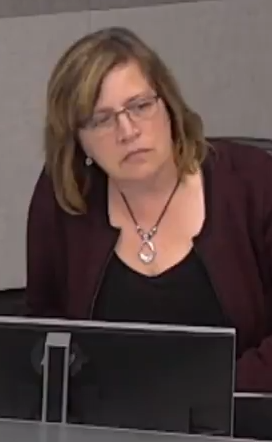 Councillor Shawna Stolte – the big spender in this budget. In the previous two councils Marianne Meed Ward was usually the lead with things she wanted to see money spent on.
A total of 67 BAR requests were filed: Galbraith 4; Kearns 13; Nisan 11; Stolte 12; Sharman 12; Bentivegna 9 and Meed Ward 6.
Stolte took the prize for the biggest spend – she wanted to see a tax levy of $2,075,000 dedicated to the electrification of public transit. This whopping sum on transit sets out just how much the attitude towards transit has changed – there was a point when the city didn’t have a transit advisory committee and had a Councillor who wanted people to have to undergo a means test to get half price tickets.
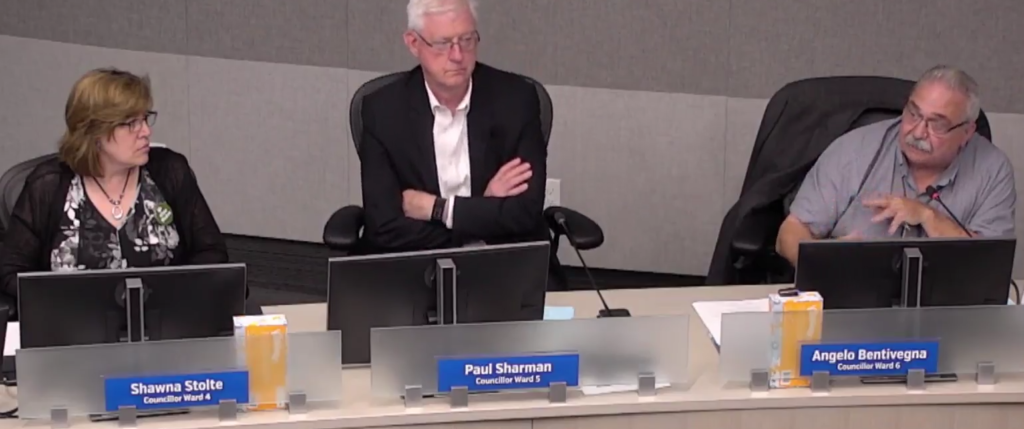 Councillor Sharman, centre. appears to want to have nothing to do with the chit chat between Bentivegna and Stolte. Transit cuts and additions got the most attention; Sharman wanted to defer all spending on new buses until there was a transit business plan in place: savings $789,737. Kearns wanted to save that same amount of money by taking away the delegated authority the Director of Transit has to buy electric buses until there was a workshop outlining the feasibility of a green transit fleet. Stolte wanted to remove four operators, at a savings of $394,869 and spend that money on two electric vehicles.
 Councillor Sharman – thinking it through. 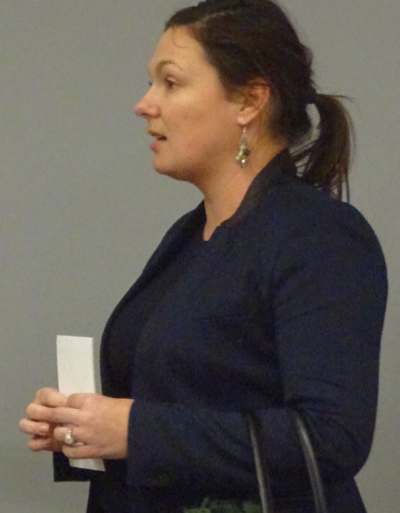 Wants to put the money Sharman has his eye on to a different use. Six of the seven members were for spending $42,250 to cover the cost of free transit for children under 12- Sharman was the holdout.
City Council uses Staff Directions to give the city administration specific instructions on something they want done that is not covered in the delivery of services that are budgeted for each year.
The tone and content of those Directions give us some sense as to the way a Council member sees his or her role as an elected official.
Angelo Bentivegna is the author of four of the eleven Staff Directions
Direct the Director of Roads, Parks & Forestry to review options for residential property owners to clear sidewalks in front of their property and identify any associated impacts.
Direct the Director of Building and By-law to investigate the feasibility of providing additional support to ensure by-law compliance (e.g. business and lottery licenses, building permits). Investigate pilot project on specific commercial roads to ensure compliance with all businesses to create a level playing field and to seek compliance opportunities to ensure transparent practices throughout the city. Seek opportunities to utilize business Intelligence (BI) platform for reporting data to internal and external stakeholders.
Direct the Executive Director of Environment, Infrastructure & Community services to review the impact of increasing the gas tax allocation to transit from 75/25 to 70/30.
Direct the City Clerk to review the consolidation of all funding for advisory committees with funding allocated based on an annual business plan / work plan.
Councillor Kearns has a different focus – her four Staff Directions are:
Direct the Chief Financial Officer to review the current value assessment and taxation changes for the Downtown Business Improvement Area (BIA) properties and consult with the Municipal Property Assessment Corporation (MPAC) and the Region of Halton regarding available tax policy initiatives and report back to Council with the results of the review in Q1 2020.
Vision to Focus Plan – Financial alignment
A) Prioritize funding to implement the V2F as outlined in F-41-19 with particular focus on allocating special dividends received from Burlington Hydro toward the strategic plan.
B) Allocate any unanticipated discretionary funding from upper level governments to the 12 unfunded V2F initiatives, excluding the ZBL review scheduled for 2020 at a cost of $2.5m.
Direct the Director of Community Planning to complete Low-Rise Design Guidelines that address issues of low rise compatibility and results in Low- Rise developments that positively contribute to our urban areas.
Direct the Director of Community Planning to report on the financial impact of a recommendation to reduce fees for charitable housing organizations by Q2-2020
Councillor Stolte feels she and her colleagues need some help in getting THEIR message out and asked for $40,000 for a Part time Communications Staff for Councillors Office; Add ongoing funding for P/T staffing to be shared by Councillors’ Office. The city already has a senior Communications manager who serves the interests of the city – Stolte thinks the Councillors need their own communications expert.
This Council has convinced itself that the Private Tree Bylaw is going to be revenue neutral; that fines will cover the cost of the five FTE that will be hired to police who cuts down trees.
During the debate on the Private Tree Bylaw at Standing Committee reference was made to how successful the pilot project in Roseland really was – there were very few people upset with having to get a permit. Stolte did point out that the chain saws were buzzing the days and weeks before the pilot bylaw came into effect.
Is the city going to see the same thing in the next week or so? The tree bylaw will come before council on the 16th.
These BAR’s are ideas, things a Councillor would like to do or a pet project. Few of them will get past the discussion stage.

 By Staff By Staff
December 10th, 2019
BURLINGTON, ON
No doubt now about what is happening opposite city hall.
 Tight fit on a small site. It’s a tight fit for all the equipment on the site – heavy duty drills that are doing foundational work and concrete mixers lined up to pour.
The marketing drive is well underway and Carriage Gate vice president Mark Bales shows up at city council to get the developer view point on the table.
 Drill ready to sink steel into the foundation of The Gallery. The Gallery, the name of the 23 storey condominium that will rise opposite city hall, is the first of three developments that have been approved and can begin construction.
Priced from the $400,000s to over $2 million, the suites at Gallery Condos + Lofts range in size from 600 square feet to 2,200 square feet and feature functional, open-concept layouts with large living rooms, gourmet kitchens and expansive balconies or terraces. Standard finishes include wide plank laminate floors, nine-foot ceilings, two-tone kitchen cabinetry, polished quartz countertops and a modern porcelain tile backsplash.
ADI’s, the Nautique, now has mesh type hoarding around the site – can’t see a thing.
The development south of the Gallery, approved for 17 floors, at LPAT looking for 23.
The Bridgewater does have some work being done on the site – still no clear answers to the questions that are being asked.

 By James Young By James Young
December 9th, 2019
BURLINGTON, ON
I attended The Planning and Development Committee on Thursday when Councillor Bentivegna expressed his controversial “disappointment” with a delegation.
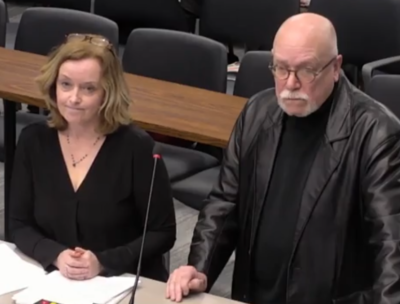 Lynn Crosby and Blair Smith delegating at city hall. I heard presentations by city planners and consultants, one doesn’t have to agree with them to find them informative. I heard informative delegations from Lynn Crosby and Blair Smith of “We Love Burlington” and Don Fletcher for “Plan B”, the conscience of our waterfront. I heard self-serving delegations from developers and their professional associations, leaving me wondering: Do developers from Hamilton or Toronto deserve equal consideration with local residents who have to live with the developments long after developers have moved on?
In the evening session I heard a detailed delegation from Gary Scobie, who provided councillors with a concise, accurate and informative planning history of Downtown. I hope council and staff learn as much as I do every time Gary delegates.
Roland Tanner, for Engaged Citizens of Burlington, gave an intelligent dissertation on the compromise inherent in the staff recommendation, to get the Official Plan done now and fight the Major Transit Station Area (MTSA) and Urban Growth Centre (UGC) designations later.
I loved David Barker’s idea of a pedestrian area at Lakeshore and Brant St.
Coming from Glasgow where, in the 1970s, Sauchiehall and Buchanan Streets were pedestrianised and closed to traffic. On a Burlington scale: this is the equivalent of closing Lakeshore from Guelph Line to Maple Ave. and Brant Street from Fairview to Lakeshore. Despite the hue and cry at the time about where will cars go? How will local businesses survive?
Fifty years on, these streets bustle with successful retail, patio cafes and restaurants, buskers on street corners, making it one of the most vibrant and attractive pedestrian precincts in the world. So closing Brant from Caroline to Lakeshore as a pedestrian precinct seems easily achievable if the city will is there.
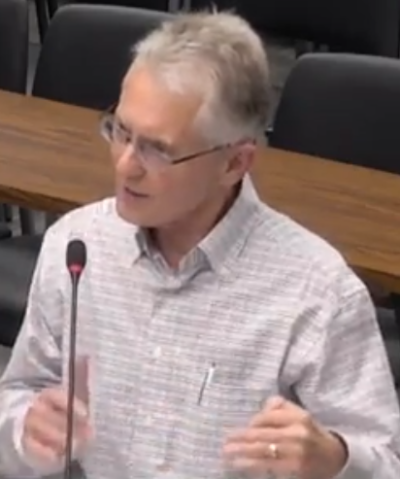 Gary Scobie during his delegation. Then there was the “disappointment” that councillor Bentivegna expressed at some of Gary Scobie’s delegation. This seems to have outraged some Gazette contributors.
I disagreed with the councillor. Gary was spot on in his summation of the Downtown OP Review. But was it outrageous or disrespectful? Have we reached a stage in our sensitivity that any criticism or response to a delegation is somehow offensive? What I saw was a poorly thought out point from the councillor, very ably responded to by Gary in what he later described as the normal thrust and parry of council/delegate debate.
My take on outrage is: “Commentators may not be more outraged than the victims.” I happened to be sitting with Gary and Roland Tanner when Clr. Bentivegna stopped by to discuss their delegations. Neither Roland nor Gary were outraged or offended. For those so outraged by a single word, cast your minds back to a time when five of seven councillors repeatedly offended and were downright rude to delegates like Gary, Tom Muir, Lynn Crosby, myself and many others. While I understand and respect Clr. Nisan’s desire for decorum, perhaps he was a little quick on the draw in this case.
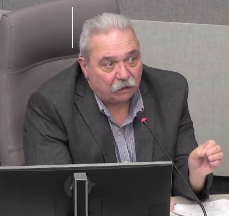 Angelo Bentivegna I was actually more offended when Clr. Bentivegna appeared to question the legitimacy of Roland Tanner’s ECoB delegation, while he accepted the presence of We Love Burlington and Plan B groups without question. Perhaps he should reflect on the influence of ECoB on the outcomes of last municipal election and be quietly thankful.
I leave readers with two thoughts on the Downtown Proposals:
If an OP is approved based on the existing designation of downtown as a MTSA/UGC, then those designations are rescinded, doesn’t that nullify that OP?
Might developers appeal that at LPAT?
Might the Province or Region resist undoing those designations on the grounds that the new OP was approved based on those designations?
I also worry that the planner’s two options are based on provincially mandated “average” UGC density targets of around 200 people or jobs per hectare. Yet developers will still apply for amendments on a case by case basis, most of which considerably exceed that number.
Judging by past appeals it appears that LPAT adjudicates on this case by case basis, regardless of Official Plan’s average densities. This will inevitably lead to over intensification which will strain infrastructure, roads, transit, traffic congestion, all of which are planned around that 200 average.
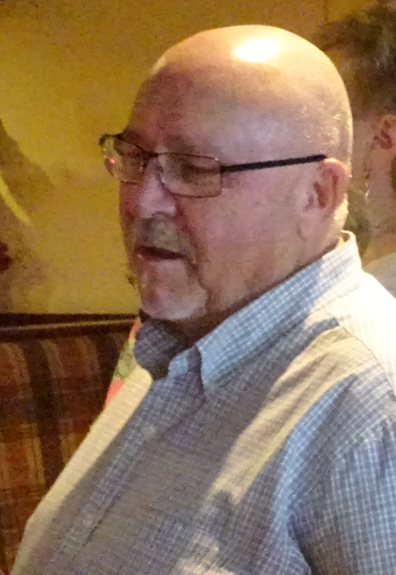 James Young is an Aldershot resident who has delegated at city hall frequently. James Young is an Aldershot resident who has delegated at city hall frequently.

 By Staff By Staff
December 9th, 2019
BURLINGTON, ON
The Rocca Sisters Team, who provide this commentary and data feel the “the most significant result from November is the continued low inventory levels.”
“At the end of November 2016, we saw freehold inventory at 216 units – at the end of November 2019, we saw 242. At the end of November two years previous to 2016 and the two years since inventory levels were between 50-90% higher.
“Remarkably, and notwithstanding these tight inventory levels, sale prices year to date are only up 4.7% as compared to the same period in 2018. A sign of things to come, however, are the November results, which had sale prices up 7.7% as compared to November 2018.
“Days on market tumbled to 27 in November as compared to November 2018 when it was taking 44 days on average to sell a property. During the month of November 2019, properties sold for 98.18% of the asking price.
“Sales were down in November but only slightly – 2.3%.”
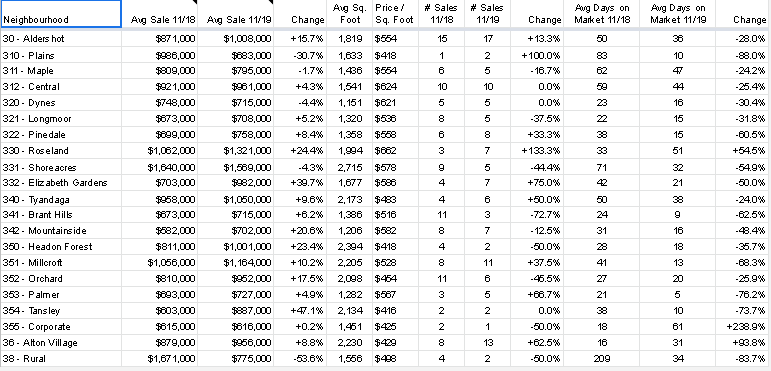
Condominium market;
“Inventory levels haven’t been this low in recent history. To put this into context, there were 61 units for sale at the end of November 2016, 69 at the end of November 2017 and 97 at the end of November 2018. At the end of November 2019, there were 52 units for sale. Year to date, sale prices had increased by 4.8% and sales increased by 12% as compared to the same period in 2018. The more interesting number, however, was the price per square foot which increased by over 10%. In the month of November, sale prices increased by 19.6%, sales increased by just over 4%, price per square foot increased by 25.8% as compared to November 2018. Condos sold for 98.48% of the asking price and in 27 days, on average during the month of November.”


 By Joseph A. Gaetan By Joseph A. Gaetan
December 9th, 2019
BURLINGTON, ON
At the moment, the secondary school unions and the Ontario government are at loggerheads over whether 4, 2 or 0 online classes should be offered. Having experienced both traditional and e-learning firsthand I can attest to the fact that in both cases some courses are delivered better than others.
 Take your courses when you want – where you want and if you didn’t get it the first time yo can replay the class. In my experience there is room for improvement on both fronts and not every subject is a candidate for e-learning. One of the criticisms I have heard about e-learning involves access to tutors, something I found to be both a problem and an opportunity. On one hand not having instant access to a tutor can be frustrating, on the other hand, from personal experience, it can make you dig deeper for the solution. In education, as in life, some of the things that stick with us the most are the things we had to work the hardest to achieve. Easy and instant access to resources is not always the answer and is not always the best form of education.
Say or think what you want about online learning, it has been here a while and it is here to stay, and, it’s growing in leaps and bounds. For many people it is a game changer as it may be the only way they can earn those last few credits or a credential that they otherwise would not be able to earn. For some it is a matter of cost or a way to balance raising a family while earning a living.
According to the “Ontario Learn” website, in 1995 seven colleges put their heads together and started to offer online courses, today 24 Ontario colleges offer high quality online education. The original seven realized that by pooling resources, they could extend their reach by offering online courses and programs to students who would not otherwise have access to them.
“Athabasca University” (AU) is a Canadian Open University specializing in online distance education and is one of four comprehensive academic and research universities in Alberta. Founded in 1970, it was the first Canadian university to specialize in distance education. Athabasca offers online undergraduate and graduate programs and courses. AU serves over 38,000 students (over 7,900 full-load equivalents) and offers over 900 courses in more than 50 undergraduate and graduate programs in a range of arts, science and professional disciplines.
If you haven’t heard of a MOOC, you aren’t alone. MOOCS or Massive Open Online Courses have unlimited participation and open access via the web. EDx is just one online MOOC platform that has about 14 million learners and is the second largest MOOC provider in the world. The global MOOC market size was estimated to be $4 billion in 2018.
When I wanted to brush up on my knowledge of social media marketing, I turned to EDx and promptly found 10 offerings. One course from Boston University not only met my needs but allowed me, should I so desire, to earn a credit towards a Micro Masters. The course starts in April of 2020 and currently has 69,871 registrants.
So why all the fuss and push back here in Ontario? Online learning is anything but new. Online learning may also be the only choice for some people who have different learning styles or disabilities. My granddaughter is in grade 10 so I sought her opinion on the topic. Her response; she prefers having a teacher in front of her. Good enough. Online learning is not for everyone. Some students like my granddaughter prefer a live teacher, some may learn better, as I did, with online learning.
The current generation of high school students are prodigious users of online technology. So why not offer them online learning as part of our high school curriculum? Failing to offer online learning in this day and age is a missed opportunity.
Athabasca University has been around since 1970 and Ontario Learn since 1995, and 2020 is just around the corner, so let’s get on with it, but do it right, and by that I mean involving the right stakeholders be it parents, students, teachers and the government in the process.
There is but one pool of taxpayer money, some of that pool is dedicated to education, some of that pool goes towards paying for infrastructure, some for books and supplies, some for school repairs and maintenance, and some to teachers and other staff.
 There are strengths and weaknesses to online education. It does cost the governments less. We have one of the best and most expensive education systems in the world. In order to continue to be the best we must find a way to make online learning part of that system and we can either lead the way, or we can sit back and suffer the consequence of lagging as did Research in Motion (RIM) aka Blackberry.
At the moment online education is geared to post-secondary learning. I see two pathways for primary and secondary student e-learning. One has the government and other stakeholders working hand in hand to figure out how to make e-learning part of Ontario’s education future.
The other path is market based where the government with the help of e-learning experts such as EDx create a series K to 12 courses that are optional for those who would benefit the most. In the end this approach will only work if there is value to members of the target market, “the student”.
 Joseph A. Gaetan has a BGS degree in applied studies, earned through studies at The University of Waterloo and Athabasca University. He also earned a Province of Ontario Engineering Technology Certificate through Fanshawe College, and for 8 years worked at earning a trade becoming a Journeyman Machinist. He also studied French at the Centre Linguistique du Collège de Jonquière and Italian at Mohawk College. In addition, he has taken online courses through the EDx platform taking courses from Harvard, The University of Queensland, Wellesley and Delft Wageningen, he is currently working at learning 6 languages through Duolingo. His work career includes being a Machinist, a CNC programmer, a business owner, a consultant and the Director of Organizational Development for a Fortune 100 company. All of this thanks to life-long learning. Joseph A. Gaetan has a BGS degree in applied studies, earned through studies at The University of Waterloo and Athabasca University. He also earned a Province of Ontario Engineering Technology Certificate through Fanshawe College, and for 8 years worked at earning a trade becoming a Journeyman Machinist. He also studied French at the Centre Linguistique du Collège de Jonquière and Italian at Mohawk College. In addition, he has taken online courses through the EDx platform taking courses from Harvard, The University of Queensland, Wellesley and Delft Wageningen, he is currently working at learning 6 languages through Duolingo. His work career includes being a Machinist, a CNC programmer, a business owner, a consultant and the Director of Organizational Development for a Fortune 100 company. All of this thanks to life-long learning.

 By Rachelle Otto By Rachelle Otto
December 10th, 2019
BURLINGTON, ON
Are you searching for an online casino that allows Canadian players?
Well, get your gaming suit on because they have designed a website and written up a list of the highly-rated Canadian online casinos that are after every Canadian’s heart and that offer deposits and bonuses which favors the players.
Canada has a neutral ground when talking about online casinos, it has a vast central ground.
Canadian online casinos give every individual from the world a chance to participate in online gambling in their casinos. Most persons ask whether Canadian casinos can be trusted well the answer to that is yes. Cutting to the hunt, every legit and appropriate online Canadian casino is trustworthy. There are some could not be trusted but this is not because they are destructive but because they promise one thing and give another.
But as they say there must be a black sheep in every family, we’ll all online Canadian casinos are checked for security and safety purposes before and when people are using. These protocols are essential because it reduces theft.
There are several games offered in Canadian casinos which include:
flat jackpots
live casino
poker
bingo
progressive
video slots
classic slots
History of online casinos in Canada
Given the fame of Canada online casinos in other parts of the world, Canada is a big participant in online casinos. Years back gambling was illegal in Canada. In the year 1892 and 1969 Canadian Authority preserved the illegitimacy of gambling in the country, social progress greatly helped in influencing the government to permit lotteries in the year 1969.
In 1985 gambling powers were delegated to provinces. The requisition for gambling in Canada has proven to be way forward than the legal conditions put in place.
The protocols scripted up were inadequate, and backward.
Canadian online casinos are the epicenter to the largest and the most common games worldwide which include skiing and ice hockey.
We can say that Canadians will stop at nothing in making Canada an utopia even if it would sound unattainable, therefore they want to make life more eventful by participating in online casinos.
Canadian online casinos give bonuses to the newbies this simply means that if you receive a money bonus that you can utilize to play your next game.
When you sign in the online casinos, Canadian dollars can be used but sometimes they may need you to use different currency by changing it to American dollars, pounds, and Euro.
Using Canadian currency is easy because it gives participants a chance to use a currency that they are familiar with.
Also, they is no need to pay exchange charges when changing it to other currency.
One of the most asked questions is are the winnings taxed.
In Canada participating in online casinos is not seen as a source of income therefore they are not taxed, the only way one would be taxed is if they won a huge amount of money.
Why people opt for Canadian online games
 1. It is a convenient type of game 1. It is a convenient type of game
2. They offer free games
3. They give bonuses to beginners
4. They give loyalty points to individuals who participate in online games.

|
|











































































